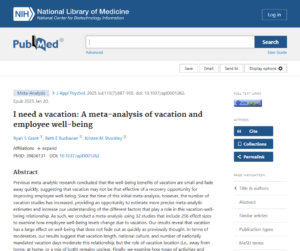
“Vacation has a large effect on well-being that does not fade out as quickly as previously thought”, Meta-analysis shows
“Almost everything will work again if you unplug it for a few minutes. Including you.”
~ Anne Lamott
Below you will find peer-reviewed research studies and articles supporting the ‘Recovery’ phase of our High Performance Routine.

“Vacation has a large effect on well-being that does not fade out as quickly as previously thought”, Meta-analysis shows
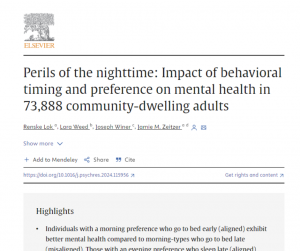
Going to bed early and rising early is associated with better mental health than going to bed late and rising late.
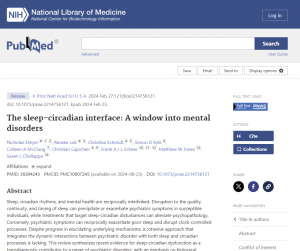
Disruptions in sleep quality, continuity, and timing can trigger or worsen psychiatric symptoms, and vice versa.
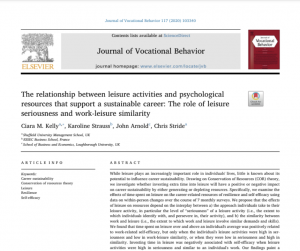
What they found: There’s a reason that research finds that Nobel prize winning scientists tend to have more hobbies than those who are good but not quite great scientists. In this study, they researchers looked at how leisure activity impacts our work. What they found is that leisure activity boosts work self-efficacy, potentially helping us perform better in our day jobs. But there was an important caveat. It wasn’t just about having a hobby, the impact of workplace self-efficacy was highest when people took their hobby serious and it was different enough from their actual work. In other words, if their hobby was too similar to their work, it actually hurt work self-efficacy.
What it means: Common advice tells us to get obsessed about something to be great at it. Be the football coach who only loves all things football. Well…research might point us in another direction. In this case, we need activities and hobbies that are different. Activities that allow us to turn our brains away from whatever it is we do during our day job. Diversify your experiences and pursuits.
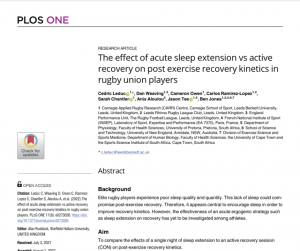
What they found: In this study, researchers compared sleep versus easy aerobic activity (Think: an easy jog or bike ride for an athlete), in rugby athletes. They found that sleep extension had a faster recovery in cognitive performance, but aerobic activity led to quicker neuromuscular function and autonomic recovery.
So What? It’s important to note that this was a small study looking at a single nights sleep. But it does provide something novel and useful. If you need to get ready for game or big performance, of course you should prioritize sleep, but you shouldn’t neglect some easy aerobic exercise. Perhaps this is the reason why so many runners go for an easy shakeout jog the morning before a race?
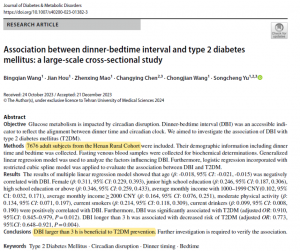
Is there an optimum time to eat dinner to reduce the risk for Type 2 Diabetes? This study on 7000+ adults found eating dinner 3h or longer before bedtime is associated with reduced risk for type 2 Diabetes.
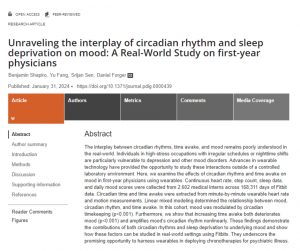
Longer wakefulness leads to a statistically significant decline in mood (p<0.001)
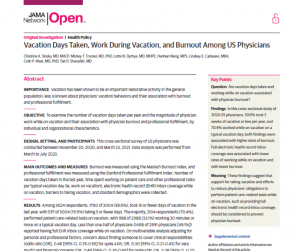
Physicians who take few vacation days each year are more likely to face burnout
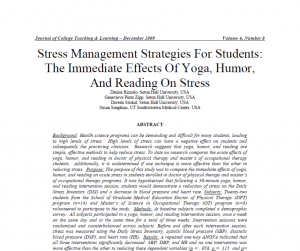
30 minutes of reading is as stress relieving as yoga or watching your favourite comedy film.

The risk of dementia and sporadic/late-onset Alzheimer Disease is strongly associated with lifestyle factors. In particular, diet, sleep quality, and circadian cortisol regulation.
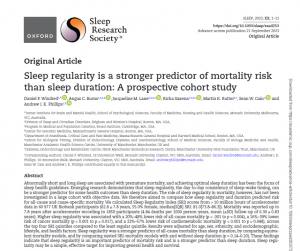
Sleep regularity, the day-to-day consistency of sleep–wake timing, can be a stronger predictor for some health outcomes than sleep duration.
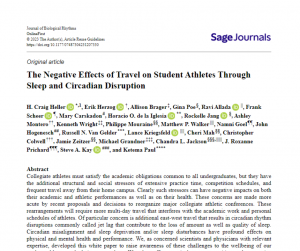
Travel can cause misalignment of internal rhythms, resulting in lower performance, reduced cognition, poor memory storage, and poor emotional regulation.
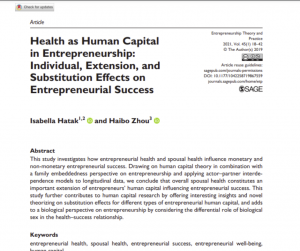
An entrepreneur’s physical & mental health, along with the physical & mental health of their spouse, impacts the chance of startup success.
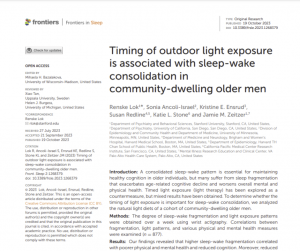
Reduced daytime light exposure was associated with increased sleep-wake fragmentation. Afternoon light therapy might be more efficient in consolidating sleep and wake in older adults.
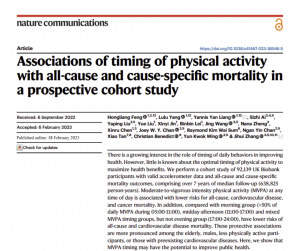
Is the afternoon the best time to exercise?
This large study has 2 important findings:
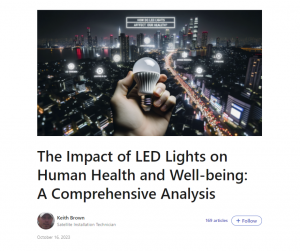
LED lights have potential drawbacks on human health, particularly sleep quality, mood, productivity and long-term health effects.
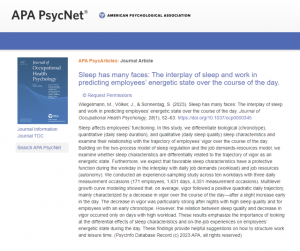
Sleep quality predicts day-level vigour. And: The benefits of good sleep quality decrease over the course of the day, particularly when workload is high
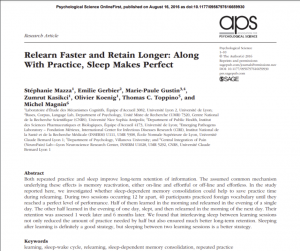
Sleeping between learning sessions reduces the amount of practice needed by 50%, and ensures better long-term retention.
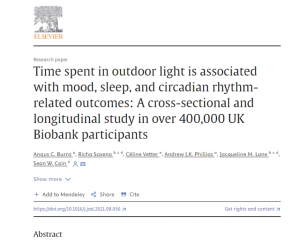
Research shows that for every extra hour spent outdoors, you’re more likely to be happier, and to lower the likelihood of depression and antidepressant use.
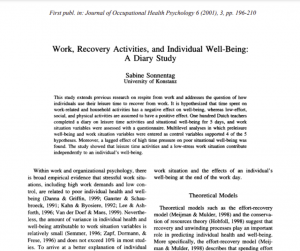
Work related activities during leisure time have a negative impact on situational well-being.
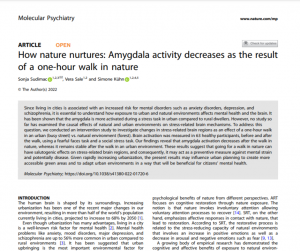
Going for a walk in nature can help prevent against mental strain and potentially disease.
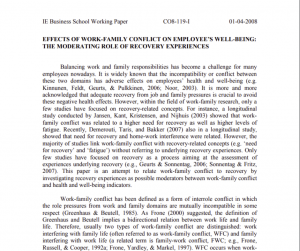
Working parents experience better recovery when they psychologically distance themselves from work.
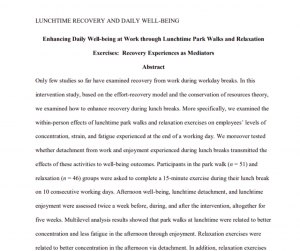
Lunchtime walks lead to better concentration and less fatigue in the afternoon.
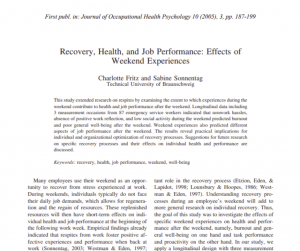
Low social activity and absence of positive work reflection during the weekend are strong predictors of burnout and poor general well-being.
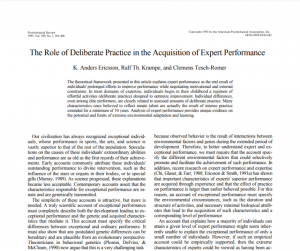
In addition to deliberate practice, deliberate rest is also used by the “Top Performers” to increase their performance – an often overlooked element of this research by K. Anders Ericsson, Ralf Th. Krampe, and Clemens Tesch-Romer.
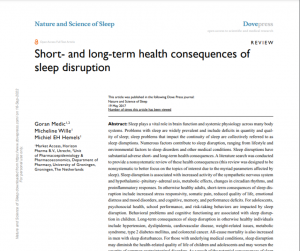
Optimising recovery from work can restore energy and mental resources, which in turn could decrease the development of sleep disorders and cardiovascular disease.
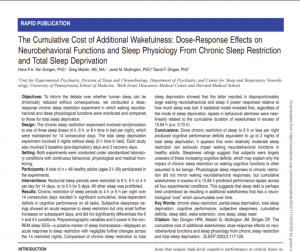
Where sleep is restricted for more than four days, effects will be evident across a range of cognitive abilities, including working memory, attention, language skills and communication.
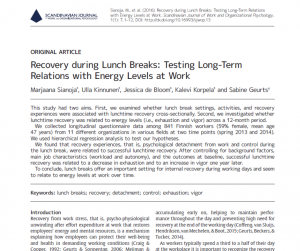
Recovering from work stress can restore energy and mental resources and decrease the development of fatigue, sleep disorders and cardiovascular disease.
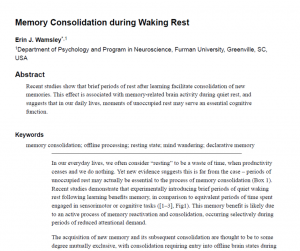
Rest can facilitate the consolidation of newly formed memories. Even a few minutes of rest with closed eyes can improve memory, perhaps to the same degree as a full night of sleep.
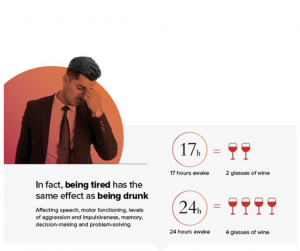
17 hours of sustained wakefulness, such as a long day in the office, has been shown to result in behavioural changes equivalent to drinking 2 glasses of wine.
After 24 hours, you may act as if you have drunk 4 glasses of wine. Diminished cognitive performance can have huge repercussions for professionals whose jobs demand critical attention to detail, such as surgeons, pilots, and drivers.
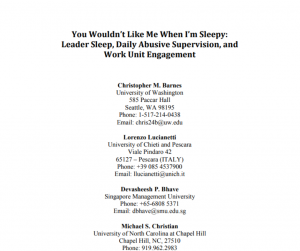
Poor quality sleep can result in bad leadership and an un-productive team.
It is associated with leader daily abusive behaviours and ego depletion, which in turn affects work engagement and performance.
By using highperformanceroutines.com, you agree to our Cookie Policy.